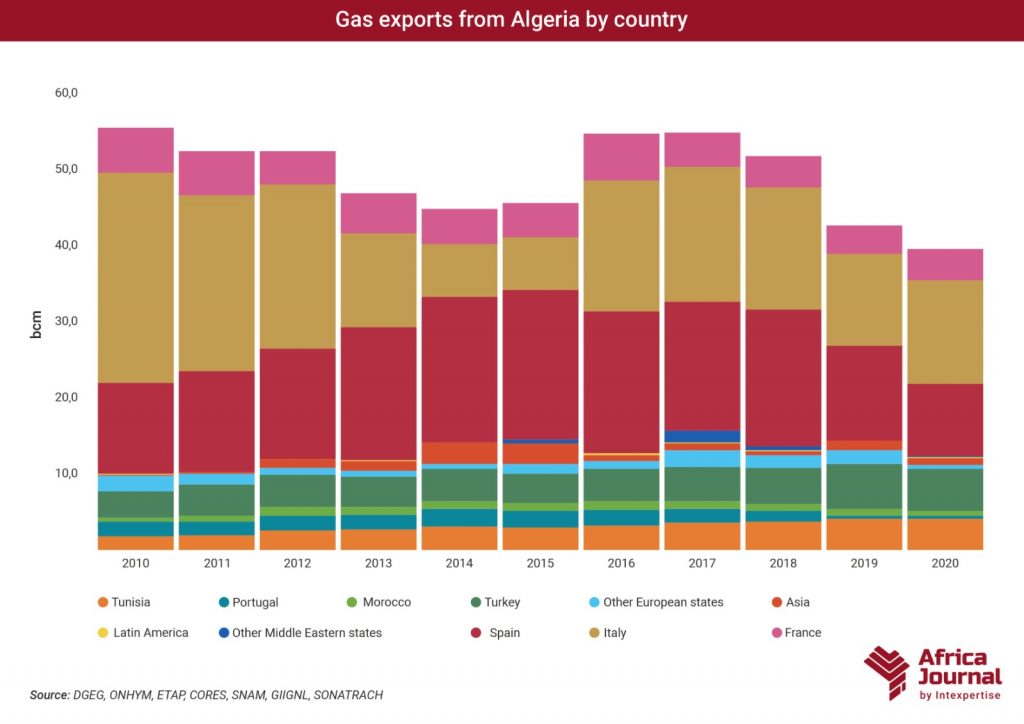On April 11th, Algerian state-owned company Sonatrach and Eni signed a contract “in the gas sector,” as the Algerian state-owned company said in its press release. What specific agreements did the parties reach and how will this affect the European gas market, which is currently experiencing severe crisis?*
Sonatrach reports that “an agreement that will allow Eni to increase the quantities of gas imported through the TransMed/ Enrico Mattei pipeline” was signed. The parties also agreed on gas prices for 2022-2023 (technical aspect).
Eni’s press release emphasizes that the parties agreed to increase the supply of Algerian gas to Italy, and “this agreement will allow to exploit the pipeline’s available transportation capacities to ensure greater supply flexibility, gradually providing increasing volumes of gas from 2022 up to 9 billion cubic meters per year in 2023-2024”.
“Most likely these are the same volumes of gas that Algeria pumped through the Maghreb-Europe gas pipeline to Spain and Portugal until autumn 2021 when transit through Morocco was interrupted for political reasons. Now these volumes will be rerouted to Italy,” Vsevolod Sviridov, a researcher at Intexpertise, said, “the volumes, 6-9 bcm per year, that went to the Pyrenees through Morocco will now go to Italy, while Spain will buy more LNG instead. Thus, the supply of Algerian gas to the EU will not increase, but shifted slightly eastward”.

Andrey Maslov, director of the HSE Center for African Studies, for RA Journal clarified, “Algeria can actually increase gas supplies to the EU market — the infrastructure allows it. However, this is possible only in two cases: if Algeria sharply reduces domestic consumption (which will hit both industry and the population), or if it reduces oil production by redirecting for export the associated gas being used for reinjection. Both decisions will be devastating for Algeria itself and, as far as we know, are not being considered”.
Author: Maria Pashkova
